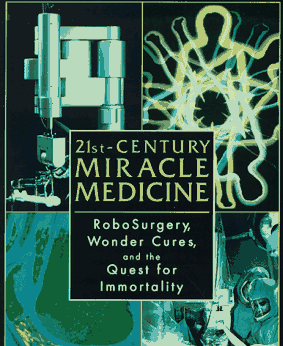Michael Fumento
Factual · Powerful · Original · Iconoclastic
Yesterday's Tomorrows
January 01, 1998 · Michael Fumento · Reason Magazine · Environment1998 marks the 30th anniversary of Reason. In the tumultuous year of our founding, few people would have envisioned the world as it is today. The future has a way of surprising us. Some guides are, however, more prescient than others, and some ways of analyzing trends more promising.
For this year’s Special Book Issue Symposium, we asked a distinguished group of contributors to identify three books on the future — one that accurately identified important factors that made a difference between 1968 and 1998, one that fell flat, and one that appears to best identify the trends shaping the next 30 years — and to explain their choices.
Whoever said even a stopped clock is right twice a day never heard of Paul Ehrlich. This professional fearmonger switched from studying butterflies to doomsaying in 1968, when he published The Population Bomb (Ballantine Books). Among its spectacular claims: "The battle to feed all of humanity is over. In the 1970s the world will undergo famines — hundreds of millions of people [including Americans] are going to starve to death in spite of any crash programs embarked upon now."
Between the "green revolution" in plant technology, a flattening Third World population curve, and imminent population shrinkage in many industrial countries, this prediction, like every major one Ehrlich uttered, fell flat. Still, The Population Bomb remains the standard to which all gloom-and-doom writers aspire. Fortunately, Ehrlich received the ultimate confirmation of his foolishness in 1990, when he received the MacArthur Foundation "genius award."
Ehrlich is always wrong because he can’t comprehend that human brains are larger than those of butterflies; that we can and do adapt. As shown by the late Julian Simon, in his classic 1982 book The Ultimate Resource(Princeton University Press, updated in 1996), when the going gets tough, the tough rise to the occasion and make things as good as — and usually better than — they were. At least, that’s true in a free society with a relatively free market. Simon’s book is the standard by which environmental myth-busting books should be measured.

Biochemist and medical journalist Alexandra Wyke’s 21st Century Miracle Medicine: RoboSurgery, Wonder Cures, and the Quest for Immortality(Plenum, 1997) is very much in the Simon mold. No talk here about turning old folks into Soylent Green to feed the teeming masses. Instead, she says, advances in biotech, computers, and information technology will change medicine so drastically in our lifetimes that today’s therapies may eventually be equated with witch doctoring.
Gene therapy and genetic screening, Wyke says, will tremendously reduce the incidence of cancer, cardiovascular disease, and some neurological diseases. So-called "newly emergent" infections will quickly be controlled by medicines not discovered by happenstance but designed from the ground up by supercomputers that provide information far more useful than that from rodent testing. Surgery will depend not on the steady hand and experience of the doctor but on devices such as the recently invented ROBODOC, combined with new imagery technology and computers that essentially make flesh and bone transparent in 3-D images, allowing machines to make cuts or dissolve tumors and blockages in exactly the right place.
Initially, such developments will drive up health care costs, Wyke says, but as they proliferate, cut patient recovery times, and save productive lives, they will more than pay their way. She predicts that by 2050, the average life span in developed countries will be a century. Doctors won’t disappear, but their role will greatly diminish as computers and robots are increasingly used to diagnose illness, prescribe medicine, and perform surgery.
Predictions beyond 20 years are usually more speculation than science, but I suspect Wyke’s forecast is on target. We are already undergoing a medical revolution, with treatments and cures coming at a pace that’s furious compared to just a few years ago. Luddites like Jeremy Rifkin will have to be defeated, and death never will. But hold on to your chairs, because we are on the verge of some very exciting times.
